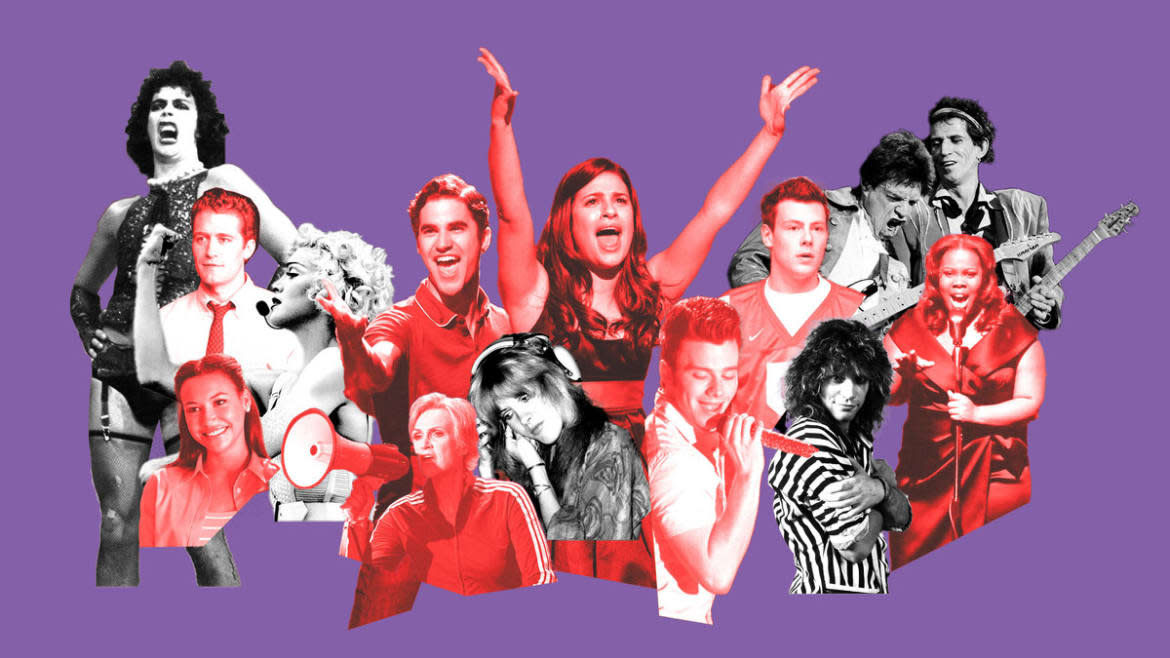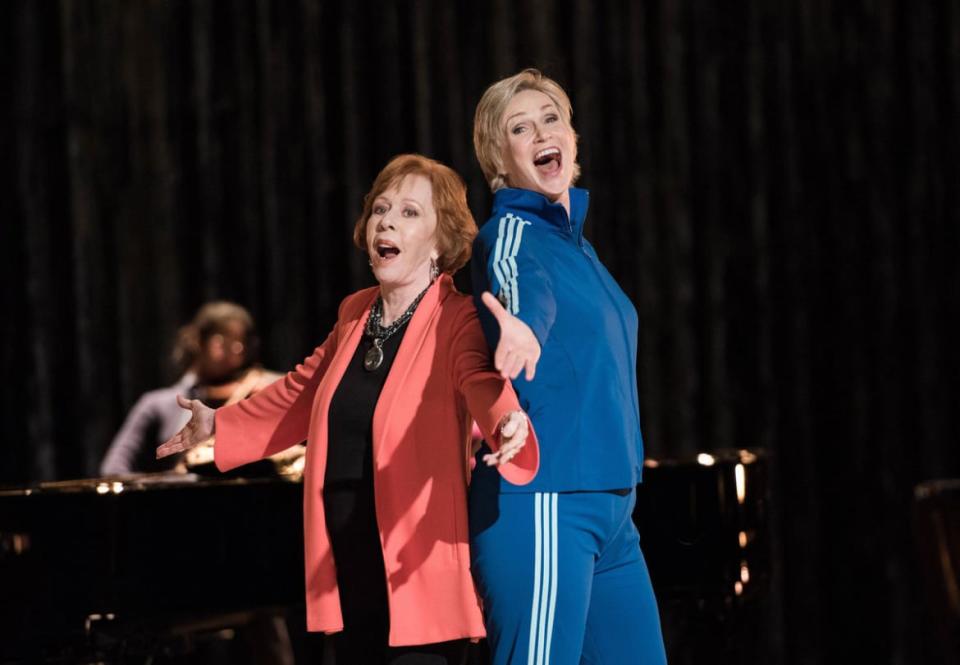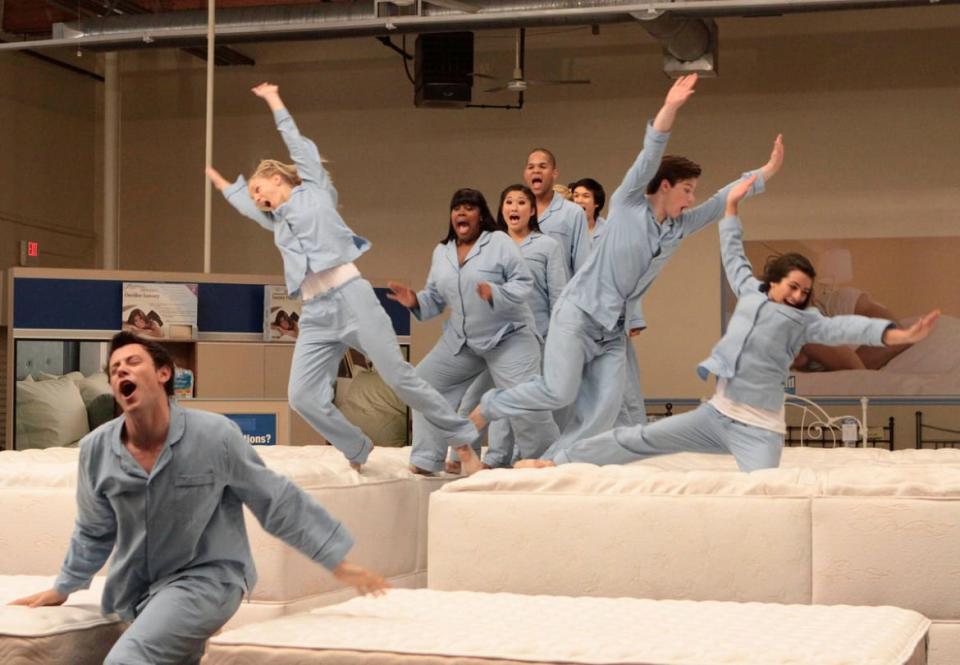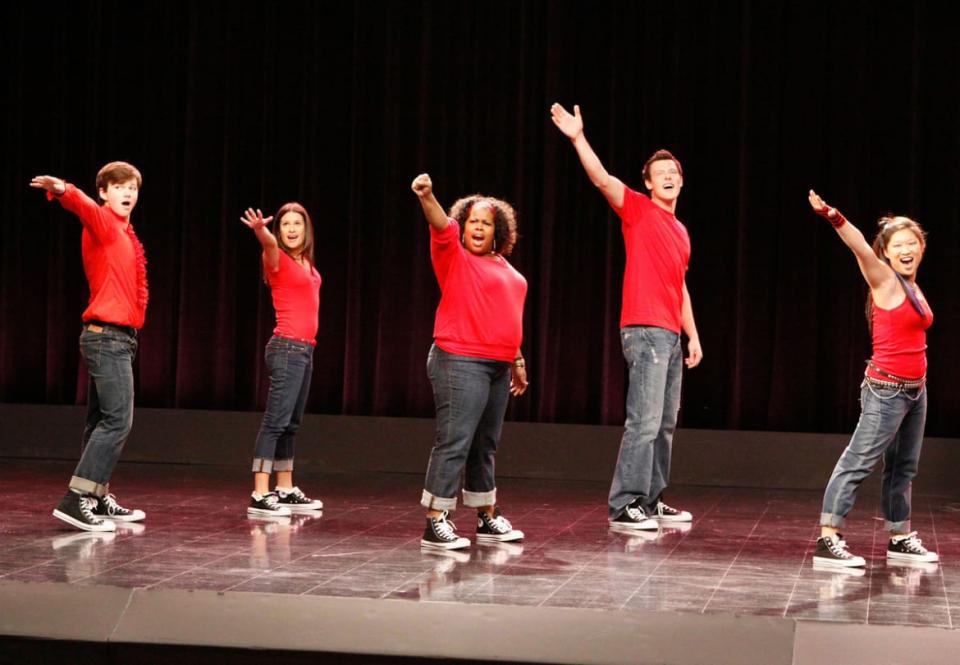‘Glee’ Changed My Life, and I’m Not Afraid to Admit It

- Oops!Something went wrong.Please try again later.
- Oops!Something went wrong.Please try again later.
- Oops!Something went wrong.Please try again later.
The final episode of the Emmy-winning musical comedy series Glee aired more than seven years ago. Back then, in May 2015, Obama was president, TikTok was merely a song by Kesha, and the word “pandemic” had yet to enter the cultural lexicon.
But some things haven’t changed since then. Glee’s legacy of cringe-worthy dialogue (“Because you’re all minorities. You’re in the glee club”), upsetting hip-hop covers, and the myriad crimes committed by Lea Michele have yet to be fully exorcised from the internet. With Glee’s streaming debut on both Hulu and Disney+ (thanks, Olivia Rodrigo), its ghastly presence is likely to haunt us for even longer.
Don’t Forget, ‘Glee’ Used to Be the Best TV Show Ever
The infallibility of Glee memes was evident just a few weeks ago,when a Twitter thread compiling the show’s so-called “most unhinged performances” in honor of its 13th anniversary went viral. The clips, like that of the show’s track-suited villain Sue Sylvester (Jane Lynch) performing “Super Bass” in full Nicki Minaj drag and vexing protagonist Rachel Berry (Lea Michele) aggressively singing Lady Gaga’s “Telephone” into guest star Jake Zyrus’ ear, were mostly met with mockery from Twitter users. Those who didn’t begrudgingly recall watching these moments live proudly declared that they had never seen a single episode of the six-season show.
Prior to that thread making the rounds, I’d already seen many of the included videos circulate. In the early days of the pandemic, a line reading from Lynch became a popular popular meme. Meanwhile, Lea Michele cemented herself as a noted pop-culture villain on par with Ellen DeGeneres and James Corden. And Matthew Morrison got roasted on TikTok for how extremely inappropriate his character, show choir director Will "Mr. Schu" Schuester, was.
Of course, there’s some occasional love for the show’s better covers, like Darren Criss’ acapella rendition of Katy Perry’s “Teenage Dream,” and pretty much anything performed by Amber Riley. But for the most part, this series has never been at risk for a critical reappraisal, just perpetual lampooning.

The cast of Glee performs "Sit Down, You're Rocking the Boat"
It makes sense: The unbelievable chaos (and tragedy) that engulfed Glee, from its music to its storylines to the real-life fates of some of its cast, is ripe for virtual rubbernecking. Even former fans accept this, and when it comes time to gawk at Glee again, they often lead the charge. Likewise, older millennials on Twitter can’t help but repeatedly express shock that the series was once the most popular show on television, a fixture on the Billboard charts, and a game-changer in the music industry.
As someone who once identified as a Gleek, I understand the urge to shit on a show that was objectively ridiculous—even if, in context, it was mostly self-aware about this—and opened the floodgates for years of insufferable Ryan Murphy content. But I often feel like the focus on Glee as peak cringe often obscures an important function it served for younger viewers like me. Since it took a bow for the last time, there’s been an indisputable void in the TV landscape—one that only Glee could fill.
The nature of that void is often exemplified on—where else?—Twitter. Users regularly debate as to whether Gen-Z is consuming music that came out before they were born or even later and, if so, how they’re finding it (Twenty-four-year-old Jack Harlow not knowing Brandy and Ray J were siblings will be the cause of World War III.) Adults often assume that kids today aren’t, given that streaming platforms have allowed them to access the music they want to listen to directly, and algorithms mold and restrict everyone’s tastes.
A 20th-century tune like Fleetwood Mac’s “Dreams” will occasionally go viral on TikTok—while competing with hundreds of other, more-current viral songs. But these musical memes are nothing compared to the education millennials got from watching VH1’s I Love The … series, Pop-Up Video, or appointment television like American Idol, where they heard a wide-range of classic songs every week.
Glee was my equivalent of these older pop culture nostalgia shows in 2009. For context, I was born in 1996. My parents were devout Christians, who solely listened to gospel music. They didn’t pass down any of the music they listened to in the ’70s and ’80s to their children. For a large part of my childhood, they only allowed my siblings and me to borrow (vetted) pop CDs from the library or listen to it on YouTube, but they never let us own any non-religious music. We also didn’t have cable to watch VH1 or MTV.
If this sounds like torture, it was. I wasn’t totally cut off from the secular world, and my father eventually loosened up once I was in high school. But I always knew I was somewhat behind in my understanding of both contemporary and older music references. Even if you weren’t raised by Protestant overlords like I was, we all need some medium to pass along the culture we weren’t alive or old enough to experience—some form of forced or inadvertent exposure.

Carol Burnett performs with Jane Lynch in an episode of Glee.
American Idol, a program that I mostly watched to make fun of terrible singers, was one of my first teachers. It helped me recognize the opening chords and choruses to a lot of power ballads. But Glee, thanks to stories and characters I was invested in, actually made me enjoy those songs.
I started watching Glee in the middle of Season 1 after discovering the episodes on Hulu, back when the streaming service was completely free. The thrill I experienced from the series’ punchy humor and dynamic performances made me feel like I had uncovered something novel and genius. I also knew my music knowledge was quickly expanding with every single episode. I would listen to Glee’s covers of the hits so much, I often memorized them in their entirety.
For instance, there’s absolutely no reason I should know all the words to “Jump” by Van Halen based on my demographic information. But thanks to the characters’ performance in an episode called “Mattress,” where they oddly film a commercial for a local mattress store, I can mumble all the lyrics and hum the guitar solo whenever it plays at a grocery store.
The same goes for a number of Journey songs; “Can’t Fight This Feeling” by REO Speedwagon;“You Can’t Always Get What You Want” by the Rolling Stones; “Sweet Caroline” by Neil Diamond; “Beth” by Kiss; “Dancing With Myself” by Billy Idol; and a bunch of other white-dude rock songs I feel at once slightly embarrassed and relieved to know.

The cast of Glee perform "Jump" by Van Halen
You may consider this useless knowledge—in most cases, it is. But Glee’s soundtrack illuminated for me a soundscape and musical history I wasn’t privy to and sparked a curiosity about rock and its origins. (A part of that education, it should be said, involved learning how indebted the genre is to Black performers.)
Glee also helped with some of my pop blindspots, particularly Madonna, whose music certainly wasn’t discussed in my home. Season 1, Episode 15, titled “The Power of Madonna,” was the first time the series paid homage to a particular artist’s catalog. The premise: Will assigns the glee club, amusingly titled New Directions, Madonna songs as a lesson in feminism. The episode even spawned its own soundtrack album of Madonna covers, which debuted at No. 1 on the Billboard 200.

The cast of Glee perform "Don't Stop Believing"
Similarly, an episode in Season 2 was dedicated to the Fleetwood Mac album Rumors, my first real encounter with the band (and its tumultuous history). Before that, a storyline in which the characters put on a production of The Rocky Horror Picture Show made me run to watch the cult musical. Glee kept up this successful tradition with memorable tributes to Journey, Britney Spears, Michael Jackson, Lady Gaga, and Katy Perry throughout the series. The stunt was practically guaranteed for high ratings, but it was also a surefire way to run me through some iconic artists’ discographies.
In 2010, Rolling Stone writer Rob Sheffield likened Glee to “MTV in its prime,” lauding the show for its “sincere nut-case enthusiasm for every style of music.” MTV is an apt comparison: An episode of Glee could feel more like a money-making opportunity for other, older musicians than a TV show, sometimes at the expense of its own narrative.
'Glee' 100th Episode: The Sad Ballad of an Elderly Trainwreck
But if you loved Glee, you were mostly tuning in for this exact reason. It’s why the music was less striking as the show began incorporating more contemporary songs in later seasons, seemingly in an attempt to salvage declining ratings. The (re-)discovery element began to fade, and viewers were left with less interesting renditions of year-old songs instead. It didn’t help that song streaming was ubiquitous by the time Glee’s final season aired, rendering its covers increasingly inessential.
But Glee’s cultural ubiquity wasn’t as much of a fluke as Twitter makes it seems. It taught younger millennial and some Gen-Z viewers how to appreciate music as a vehicle for storytelling and a part of history the same way it taught older musicians how they can trick young people into consuming their back catalogs. Yes, the series was awkward, problematic, and straight-up unwatchable at times. Will Schuester certainly should’ve gone to prison at one point. But when it comes to the series’ impact, quite simply, you just had to be there.
Get the Daily Beast's biggest scoops and scandals delivered right to your inbox. Sign up now.
Stay informed and gain unlimited access to the Daily Beast's unmatched reporting. Subscribe now.

